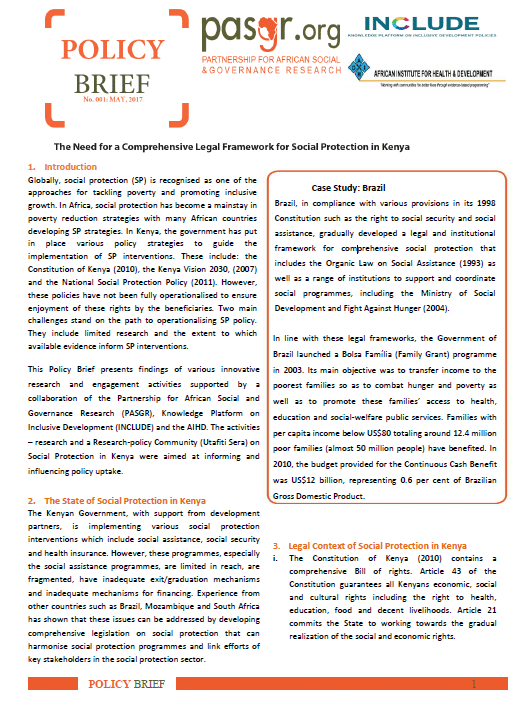
The African Policy Dialogues on social protection in Kenya published a Policy Brief which shows the state of social protection and the legal framework for social protection in Kenya. The Policy Brief is based on the dialogues by key policy actors in social protection in Kenya and outlines gaps in social protection and recommends how these gaps can be addressed.
Policy-related challenges
- Poor coordination of the various government policies on social protection.
- Political and donor interests that influence social protection policies and programmes may not always be appropriate.
- Weak implementation structures which lead to partial implementation and fragmentation of social protection programmes.
- Drafting of the various legal frameworks is driven by specific sectors and actors thus limiting the capacity and/or willingness of sectoral policy-makers to cross-reference legislation in other sectors.
- Social protection services providers including government ministries and agencies, the private sector, communities, households and other non-state actors have different approaches, are uncoordinated and operate in isolation which diminishes the potential impact of their interventions.
Policy recommendations
- Promote synergies and integration among social protection providers and stakeholders in the social protection sector.
- Establish an oversight mechanism that will ensure coordination of social protection initiatives at the national, county, and sub-county levels.
- Establish an effective and sustainable financing mechanism for social protection by expanding the financing base among other strategies.
- Enhance use of evidence in policy processes and gather more evidence to inform targeting, transfer values and delivery mechanisms.




